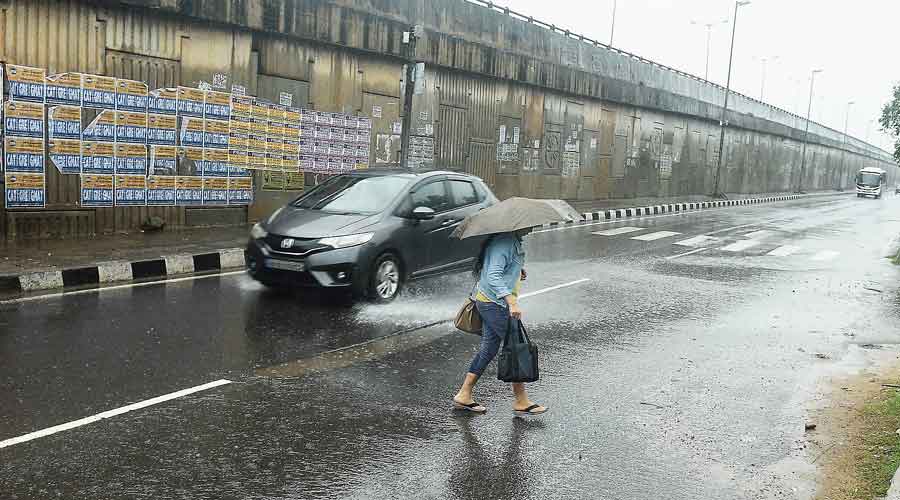The people of the pilgrim city of Puri, who are yet to overcome the nightmare caused by the cyclone Fani in May 2019, heaved a sigh of relief as Cyclone Jawad turned into a depression and weakened further. It now lays centred 50 km southeast of Puri.
After brushing past Puri, the cyclone moved towards Bengal and weakened further. However, under the impact of Jawad, nine districts of Odisha have been witnessing moderate to heavy rainfall for the last 48 hours.
Though it did not cause much material damage in Puri it has made an adverse impact on the tourism and farming sector.
Director-general, India Meteorological Department (IMD) Mrutyunjay Mohapatra told a local news channel: “By the time it reaches Bengal, it would be a well-marked low pressure.”
The IMD in a press release said: “It is likely to continue to move north-northwards, along Odisha coast towards Bengal coast and weaken into a well-marked low-pressure area during next 12 hours.”
Several trains were cancelled and flights were delayed because of Jawad. Passengers at the Biju Patnaik airport ventilated their anger after Indigo cancelled its flight to Varanasi because of Jawad. The Air India flight to Delhi was delayed by two hours.
“There has been no arrangement from the Biju Patnaik Airport Authority to look after the needs of the passengers. Nobody is on the counter and no information is being given to passengers and no announcement is being made. It has become chaotic,” said Debasis Mohanty, 52, an aggrieved passenger whose flight to Delhi was delayed by two hours.
However, the most upset were the tourists who had come to Puri to spend their holiday weekend.
“Because of the lockdown, we had not been able to come out from our houses for the last one and a half years. But this time though we stepped out from the house and reached Puri, we were not able to go to the beach. The police asked us to go back to the hotels and remain confined to our room,” said Kajal Gupta, a tourist from Bengal.
President Puri Hotel Owners’ association, Rama Krushna Das Mohapatra told The Telegraph, “We had lost everything in Fani. After Fani, came the Covid pandemic. Our backbone has completely shattered. Though infrastructure-wise, there was no loss. But the Jawad had an impact on tourism industries. Many people had cancelled their bookings.
“We lost a major chunk of business because of Jawad. We are even struggling to pay the salaries of our employees. We don’t know when tourists will come back again.”
On the other hand, farmers bore the brunt of the Jawad. Though the wind speed remained below 70kmph, heavy rains triggered by Jawad have destroyed the entire winter crop, particularly the vegetables and the paddy. Khallikot in Ganjam district received the highest rainfall of 158mm.
Ramakanta Behera, a farmer from the Pipili area of Puri district told reporters, “We had harvested the paddy. But I was not able to take it to a safer place. The entire paddy crop was lost.”
Another vegetable grower Kubalu Mohanty from the Niali block of Cuttack district said: “The cabbages, tomatoes and other vegetables that we had grown during this winter are gone. Government should immediately assess the crop loss and announce a special package for farmers.”
On the other hand, Special Relief Commissioner (SRC) P.K. Jena said, “Crop damage estimates will be carried out within seven days on a priority basis and then other damages will be assessed.”











